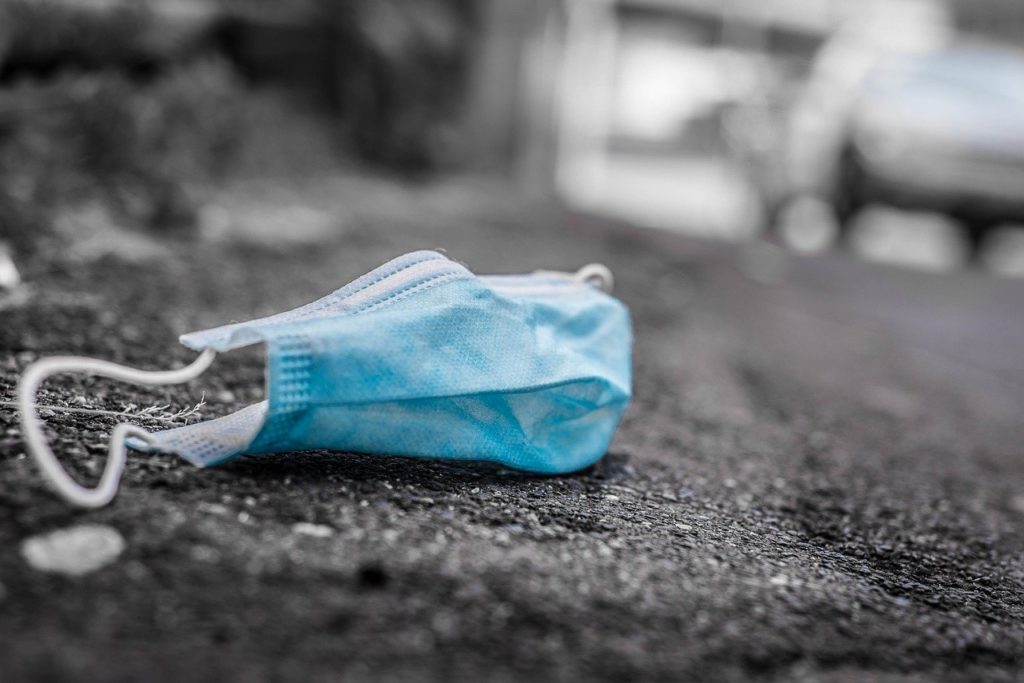Plastics Waste During COVID
 |
"I remember going to a coffee shop and them saying, 'We can't fill your cup'. I think it was mere days later everything was shutting down. But that was the first little tiny step, was reusable coffee cups." "People are still motivated to want to do something [about the environment]." "There was really strong support for more regulations and bans on single-use plastics a year ago. When we ran our survey this summer, we saw a lot less support for that, which makes sense based on the idea that it's less of a priority issue right now [in preoccupation with COVID-19 issues]." "The experience of the pandemic has been gendered in a lot of different ways [such as childcare disproportionately affecting women]." "It's hard to imagine how you can move ahead [with things like zero-waste grocery stores] in the same way today in our new environment. But at the same time, the issue of plastic pollution is the same whether or not there's a pandemic. Ocean plastics don't care about our pandemic. The problem hasn't gone anywhere, and we still need to find solutions." Robert Kitz, research associate, Agri-Food Analytics Lab, Dalhousie University, Halifax, Nova Scotia
When COVID-19 struck an unready world, companies such as Bulk Barn and Starbucks halted the use of reusable containers in a reflection of overall concerns relating to contagion and hopes of controlling the coronavirus spread. This issue marked the turning point as the coronavirus transmission was identified as a global pandemic by the World Health Organization, heralding sweeping changes in coming months. Not too gradually cup lids, disposable cutlery, bottled water packs and plastic containers have been proliferating as plastic waste continues to make its presence known.
Dr.Kitz and co-authors of a new study on plastic food packaging looked intensively at how attitudes of consumers have been altered as a result of the COVID-19 pandemic. In their search to identify the changed attitudes, the researchers compared 977 responses collected between July 10 and 14 against results of an earlier survey of 1,014 Canadians dated May12 to 18 of 2019. Consumers actively avoiding plastic packaging has stabilized, remaining the same (58 percent in 2019 as opposed to 66 percent in 2020).
 |
In Canada, consumers taking steps to avoid plastic packaging has remained pretty much stable (58 percent in 2019 versus 60 percent in 2020), yet fewer consumers are now concerned in relation to environmental repercussions (91 percent from 87 percent; the larger decrease seen among men), as one-third of respondents admitted purchasing more plastic-wrapped foods, attributed primarily to takeout and home delivery (44 percent) and increased concerns over safety (43 percent). Anxiety over food safety strikes fifty-five percent of Canadians, while 40 percent think of new safety concerns as "very", or "extremely important" in considering whether to purchase plastic-wrapped consumables.
At the outset of the study, researchers imagined that respondents might be less concerned over plastic pollution in the light of grave immediate concerns relating to pandemic contagion. A measurable decrease was recognized, but it was also observed that most Canadians continue to be engaged in the issue of environmental protection. Zero-waste grocery stores where bans on plastic bags and straws, pre-pandemic were proliferating, have come to an abrupt halt.
 |
The issue of plastic pollution appears to be gaining momentum as the use of single-use plastic is seen to have grown by 250 to 300 percent during the pandemic, and as their use has increased, regulation efforts have faltered in the face of the coronavirus. Plans announced last year by the federal government on a ban of single-use plastic have not yet been carried through and will not likely be, for the foreseeable future of struggling to overcome the threat of the pandemic.
Back in 2019, fully 90 percent of respondents viewed stricter regulations favourably, while 70 percent gave their support to a single-use plastics ban. A drop of 11 and 12 percent respectively was seen in the most recent survey; men in particular reporting a notable drop in agreement. The issue of gender in concerns over environmental ramifications -- pointed out Dr.Kitz -- wasn't present in 2019. Price-consciousness has struck 50 percent of Canadians among the demographic receiving government top-ups to income, under CERB (Canada Emergency Response Benefits).
Leaving 55 percent of people reporting their willingness to pay more for products wrapped in biodegradable food packaging. Food security, as a result of the pandemic disrupting production and supply chains, has arisen as a greater issue in Canada because of the pandemic, with rising food costs; yet another recognizable difference from the year before. New regulations on plastics should be put into place only once the pandemic is over, in the view of over half of Canadians (52 percent).
 |
Labels: Canada, Plastic Waste, Plastics, Pollution, Study

0 Comments:
Post a Comment
<< Home